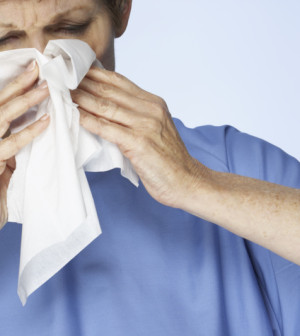- Could Your Grocery Store Meat Be Causing Recurring UTIs?
- Are You Making This Expensive Thermostat Error This Winter?
- Recognizing the Signs of Hypothyroidism
- 10 Strategies to Overcome Insomnia
- Could Artificial Sweeteners Be Aging the Brain Faster?
- Techniques for Soothing Your Nervous System
- Does the Water in Your House Smell Funny? Here’s Why
- Can a Daily Dose of Apple Cider Vinegar Actually Aid Weight Loss?
- 6 Health Beverages That Can Actually Spike Your Blood Sugar
- Treatment Options for Social Anxiety Disorder
Climate Change Will Boost Grass Pollen Production, Study Contends


Climate change will boost levels of grass pollen in the air in the next 100 years, resulting in increased misery for people with grass allergy, a new study contends.
Researchers predict that climate change-related rises in carbon dioxide will increase grass pollen production and people’s exposure to the pollen by up to 202 percent in the next 100 years.
“The implications of increasing CO2 for human health are clear. Stimulation of grass pollen production by elevated CO2 will increase airborne concentrations and increase exposure and suffering in grass pollen-allergic individuals,” wrote Christine Rogers and colleagues at the University of Massachusetts, Amherst School of Public Health and Health Sciences.
“This is the first evidence that pollen production is significantly stimulated by elevated carbon dioxide in a grass species and has worldwide implications due to the ubiquitous presence of grasses in all biomes and high prevalence of grass pollen allergy,” Rogers said in a university news release.
“These results are similar to our other studies performed in other highly allergenic taxa such as ragweed but with more extreme outcomes and wider impacts,” she added.
The study was published Nov. 5 in the journal PLoS One.
More information
The U.S. National Library of Medicine has more about grass allergy.
Source: HealthDay
Copyright © 2026 HealthDay. All rights reserved.










